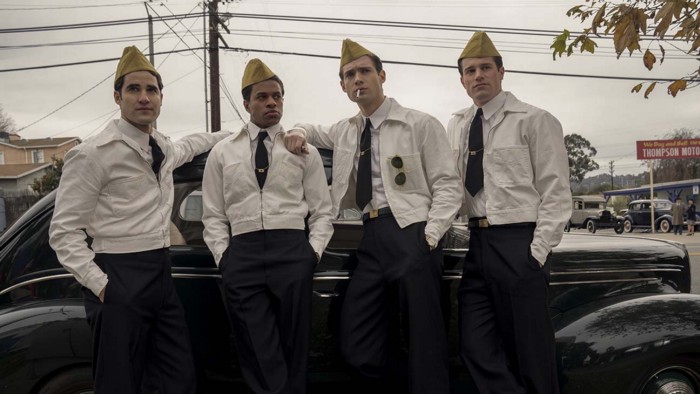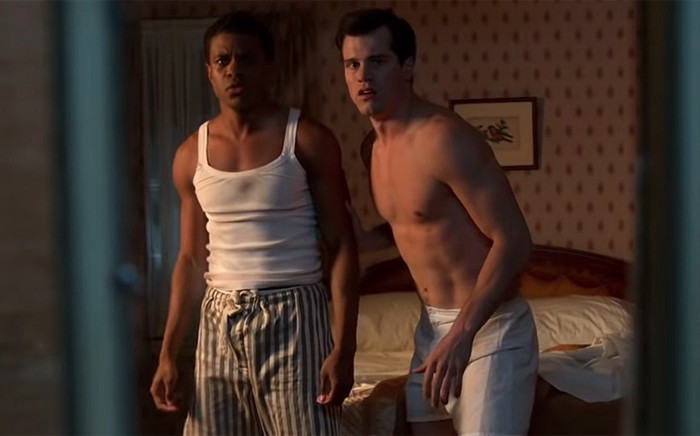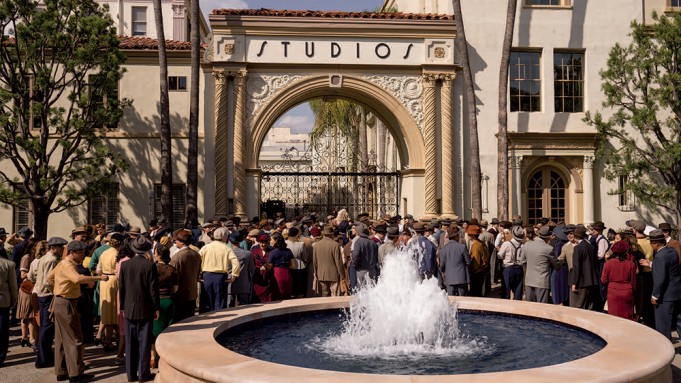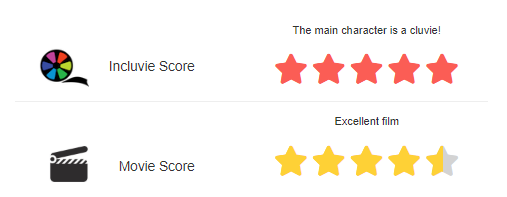Travel Restrictions? No Problem. Travel Through Movies!
If you're missing the freedom of travel, explore the world via these international films that put their gorgeous settings in the spotlight.
To say Hollywood has had a troubled past is the understatement of the century. In Ryan Murphy’s (American Horror Story) new Netflix series, Hollywood, that past is confronted and even rewritten.
As lovers of film, there is a great deal of respect we have for the talented minds that bring us such dynamic and life-changing movies. However, we as film fans cannot be ignorant to the history and reality of Hollywood. It has been a breeding ground for inequality for over a century. Hollywood was literally founded on white nationalism. The movie that defined the feature film — what created the template for the entire industry — was D.W. Griffith’s The Birth of a Nation (1915). In addition to it being the foundation of Hollywood, it also singlehandedly revitalized the Klu Klux Klan upon its release.
Now in modern times, the #MeToo movement has exposed decades of exploitation and villainy for the world to see. The patriarchal power structure of Hollywood created an environment of toxicity, encouraged by silence as people didn’t want to rock the boat. This was simply “just the way things are.” Racial prejudice, sexual abuse, LGBTQ+ suppression, and gender inequality have festered in this industry since its inception.
What if someone had said something sooner? What if someone had gone against the grain, taken a stand, and said, “No, this isn’t right.”
Hollywood, a seven-episode limited series on Netflix, paints history with a new brush. Taking place shortly after World War II, the series follows a group of up-and-comers in the industry. They each struggle with their own form of suppression amidst an oppressive system. Through a meticulously crafted blend of reality and an alternative take on history, Hollywood conjures what could have happened had someone faced this system head-on a very long time ago.

One of my favorite classes I took in college was History of Film I. The course explored everything from Thomas Edison’s creation of the motion picture, to Griffith defining the feature film, to the stagnation and rebirth of the Hollywood film industry during World War II. Ever since I took that class, I have been fascinated by film history. It’s amazing to look at how movies evolved and grew over time; how every filmmaker influenced the next, and how each subsequent filmmaker built upon what the previous had accomplished.
If you’re looking for an accurate telling of the history of Hollywood, I’d recommend enrolling in a college course more so than watching this series on Netflix. Rather, the genius of Hollywood is that it sets the stage by crafting a sense of verisimilitude, imbuing the series with a feeling of authenticity. It then builds upon that foundation by twisting the facts of history to create something entirely new. Quentin Tarantino utilized a similar approach with Inglorious Bastards, though it is done to a much different effect here with Hollywood.
The series begins by showing Hollywood as a place idealized by people across the country as a land where dreams come true. As the main characters come to see, though, it is actually a place where people prey on those weaker than themselves and hide who they really are. Everyone is closeted and falls into the homogeneity of the town. It comes from a feeling that this is simply the way things are, and that things can’t ever be any other way. Over the course of the seven episodes, however, our main characters put that to the test.
I don’t want to reveal too much about the season. Part of what made my experience watching it so great was that I didn’t know what was going to happen. The second that the show cast aside the shackles of history, anything became possible and nothing was off limits. Seeing how this new timeline unfolds, and what it says about our capacity for change as people, is the show’s most beautiful asset.

For the first part of the season, I was filled with a great deal of sadness. You see the reality of what it is like for people who have to hide and deny who they really are. People who have to cover up their sexuality, who have to refuse their own natural impulses, and have to put on a facade of what the world wants them to be. With this comes other people within the industry who seek to take advantage of those who cannot speak out.
This is especially evident through Jim Parsons’ portrayal of manager Henry Wilson. If you thought Parsons was a one-trick pony with playing Sheldon Cooper on The Big Bang Theory, his performance in Hollywood shows just how emotionally dynamic and nuanced he can be. He is someone with quick wit who in an instant can terrify you to your core.
Halfway through the season, the main concept is introduced — a concept that I don’t want to spoil. With the introduction and implementation of this idea, the season shifts. The tone becomes much more hopeful as people challenge these norms and assert more that they are going to be who they really are and will no longer hide. By the final episode, the culmination of everything the season is building towards, I was feeling incredibly emotional and filled with jubilation as this pursuit is realized to its fullest potential.
Hollywood presents us with a demonstration of how far we’ve come as a society. In 2020, the amount of inclusion and acceptance we have compared to 1947 is staggering. In the same vein, Hollywood shows how we could have become more inclusive and more accepting far earlier than we did in actuality. It is a reminder that we took far longer to get here than we needed to. Had some of the fictional characters that populate the show actually existed, perhaps we would have been decades ahead of where we currently stand.

Hollywood is a beautiful show about confronting oppression and embracing who you really are. It portrays sexuality and race equality in an honest way, shining a light on the disgusting practices and infrastructures Hollywood has always had. The journey of these characters from adjusting to having to hide who they are to becoming proud and sincere in their identity is incredibly moving to watch. The shift in the season’s tone from solemn and depressing to hopeful and optimistic is representative of the shift in the characters’ own outlooks.
The show ends in a place that is already ahead of where we are today. When one person took a stand and said no, everything changed for the better. Everyone had lived thinking things simply could not be changed, but once the change came, the floodgates opened for a brand new society. Hollywood is a call to all creators out there to open the floodgates. We can’t actually change our past. We can’t undo the atrocities of yesterday, or change the disturbing history of our movies. What we can do is change tomorrow.
We could have had LGBTQ+ acceptance, and racial and gender equality a long time ago. We could have and didn’t, but we can now. What Hollywood asks of us is not to say, “Well, that’s just the way things are”, but rather to start saying “No, this isn’t right” and taking a stand.

Author: Nathanael Molnar, originally published [5/26/2020]
Related lists created by the same author
If you're missing the freedom of travel, explore the world via these international films that put their gorgeous settings in the spotlight.